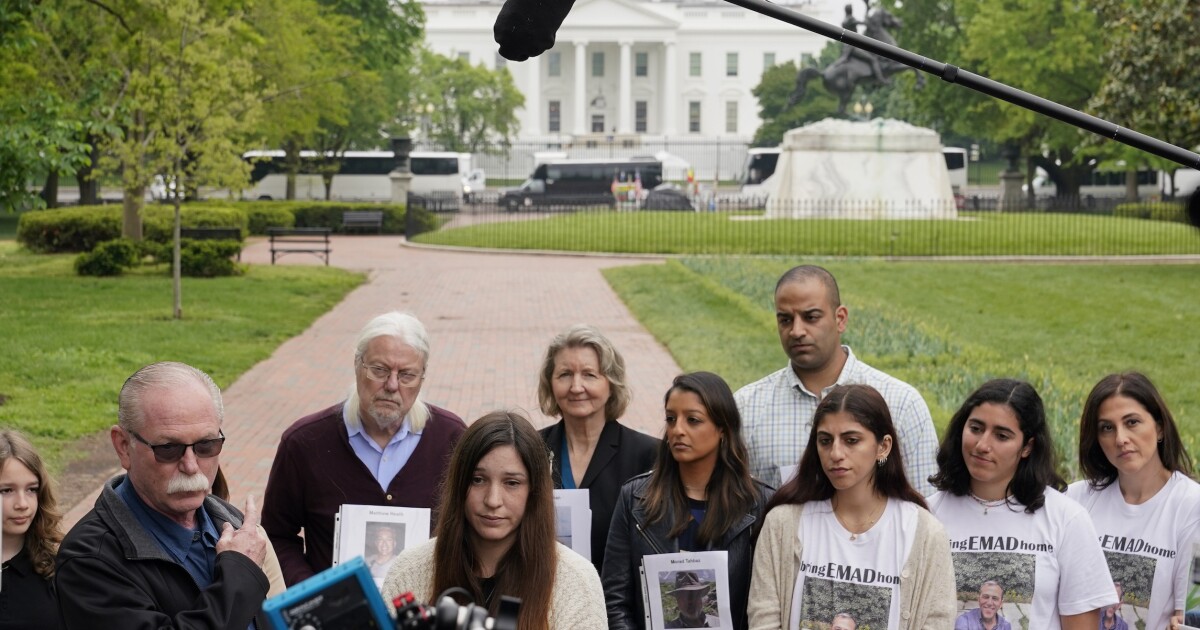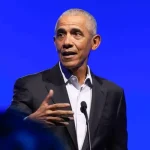

Trevor Reed returned to the United States after nearly three years wrongfully detained in a Russian prison, and in his first public comments, he urged the Biden administration to get the same result for the dozens of other Americans detained abroad.
“We need to do absolutely everything we can, as Americans, to advocate for those Americans who are being held illegally overseas and do every single thing we can possible to get them out,” Reed told CNN last month.
The former Marine had been jailed in a Russian prison with his health deteriorating when President Joe Biden agreed to a prisoner exchange with Russia in which the U.S. gave up Konstantin Yaroshenko, a Russian pilot serving a 20-year federal prison sentence in Connecticut for conspiracy to smuggle drugs into the U.S. The agency that negotiated for Reed’s release is the Office of the Special Presidential Envoy for Hostage Affairs, which leads the administration’s efforts to get wrongfully detained citizens home.
While Reed’s return was welcome news for his family and millions of people, the Biden administration left Paul Whelan, another former Marine who is being detained in Russia, behind, in addition to WNBA player Brittney Griner. The Whelan family celebrated Reed’s return but was left wondering whether it’d get to see Paul, whose detainment for allegedly being a spy predated Reed’s capture.
David Whelan, Paul’s brother, told the Washington Examiner at the time that he felt “elation for the family because we’re always — I think any detainee or hostage family is happy when the detainee or hostages leave,” but he added that the moment is “bittersweet” with “a little bit of frustration because it’s not really clear how this will impact Paul long term.”
The decision didn’t sit well with Reed either.
“I had a really strong feeling of guilt that I was free and that Paul Whelan was still in prison. I thought when I found out that it was an exchange that was happening that they had probably exchanged Paul Whelan, as well. And I expected him to be coming home with me. And he — he didn’t,” Reed said in an interview on Good Morning America. “I thought that that was wrong, that they got me out and not Paul.”
“I knew that as soon as I was able to, that I would fight for him to get out and that I would do everything I could to get him out of there,” he added, choking up as he spoke.
The 30-year-old, in his media appearances, expressed his support for prisoner exchanges, which he called “the ethical decision,” explaining, “The Russians, the Chinese, Venezuelans, Iran, Syria, North Korea — none of them ever in their whole history have or ever would make an exchange for a prisoner who is just an average one of their citizens. They would never do that. And that’s what sets the United States apart.”
“Brittney, especially in Russia, is probably in a lot of ways in a worse position than I was because Brittney is African American. There’s a large portion of the population in Russia which is racist,” Reed said at a Houston rally in June of Griner, who is also lesbian. “They also have a government that systematically discriminates against lesbian, gay, bisexual, and transsexual people under Vladimir Putin. And those things are obviously going to make Brittney’s time there a lot more difficult than if they just had taken another American hostage.”
In the days following Reed’s return, a handful of families who have loved ones wrongfully detained abroad in countries such as Iran, Venezuela, and Syria rallied outside the White House to get the administration’s attention.
The Bring Our Families Home Campaign led the rally, which had been planned prior to Reed’s return, and the group seeks a meeting with Biden, who had met with Reed’s parents in the weeks before they got their son back. Many of the family members of those wrongfully detained abroad celebrated Reed’s return at the rally, which Joey and Taylor Reed, Trevor’s father and sister, attended, saying it brought them hope for their loved ones’ possible return.
This group says that there are roughly 60 Americans who are wrongfully detained abroad, but the State Department considers the number to be much lower.
“So we never give out the exact number,” a State Department official told the Washington Examiner. “It’s hovering probably between 35 and 40.”
The difference in numbers is in part due to the fact that nonprofit organizations don’t often differentiate between “wrongfully detained” and “taken hostage,” while the State Department does have to weigh it and other factors in making those determinations, which are decided by Deputy Secretary of State Wendy Sherman. The Office of the Special Presidential Envoy for Hostage Affairs listens to those groups, and it has often alerted the department to civilians in troublesome spots.
Reed’s family members chose to be loud and go public with their case, though not every family does that. Some get the spotlight, such as Reed and Griner, while dozens don’t get the same recognition, such as Mark Swidan, who has been held in China for nearly a decade, and Airan Berry and Luke Denman, who were sentenced nearly two years ago to 20 years in prison for their alleged role in a failed beach attack aimed at overthrowing Venezuelan leader Nicolas Maduro, according to Venezuelan prosecutors.
Swidan, a businessman from Houston, was accused of being a part of a drug ring while traveling in China in 2012. His mother, Katherine, told the Washington Examiner that she felt like “they’re not doing anything in Washington” to get her son home. “They need some pressure on them,” she added, saying she spoke with Special Presidential Envoy for Hostage Affairs Roger Carstens last week by phone.
For the Bring Our Families Home Campaign rally, Melanie Berry, Airan’s wife, traveled to Washington, D.C. Like the Whelan family, she has experienced the heart-wrenching moment when hostages from the same country in which her loved one is held got released without him. The U.S. secured the release of two Americans in March held by the Maduro government, though a handful was left behind.
“I just felt so much joy for the families that they’re coming home, that they’re reunited again,” she said about the release of Gustavo Cardenas and Jorge Fernandez in March. “So, I mean, that was pretty much it. I mean, my heart was just so full [of] joy for them. And yeah, there’s a little bit of sadness because it wasn’t Airan.”
When asked if any negotiations are heating up, the State Department official said, “We have more than a few active negotiations ongoing.”
Secretary of State Antony Blinken’s long-term goals are to end the policy of “hostage diplomacy,” the official said, referencing the act committed by adversarial governments essentially to take Americans hostage and leverage them to get concessions from Western countries. The two officials believe that can only be reached by the Western governments collectively coming together to treat any hostage taken as a citizen of their countries.






